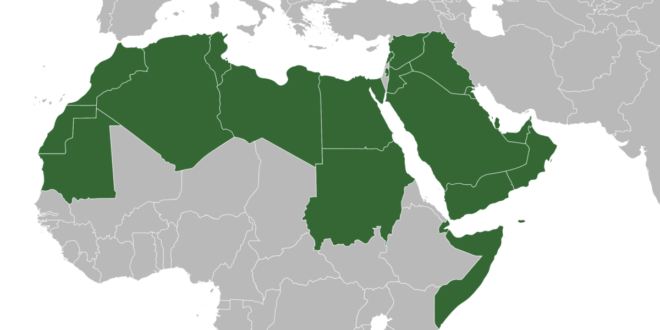Dr. Shehab Al-Makahleh
In the heart of the Middle East, the Palestinian-Israeli conflict continues to evoke strife, suffering and instability, casting a shadow over the prospects of regional harmony and global peace. Over the decades, the region has witnessed a cycle of violence, displacement and shattered lives, underscoring the urgent need for a comprehensive and lasting resolution. As we examine the contours of this conflict, it becomes evident that the path to sustainable peace lies in upholding international resolutions and embracing the principle of a two-state solution.
The recent conflict in the region has far-reaching implications, not only for the immediate area but also for the global geopolitical landscape. Amidst the turmoil and complexities, a remarkable opportunity has emerged for a transformative reshaping of the Middle East, one that could significantly bolster Israel’s strategic standing in the region. The evolving dynamics have unveiled a unique juncture that demands a holistic re-evaluation of regional alliances, power structures, and diplomatic avenues. As the ramifications of the recent conflict reverberate across borders, it has become increasingly apparent that the prevailing status quo is in a state of flux. This critical moment presents an opportunity to chart a new course for the Middle East, one that fosters stability, security and constructive engagement.
The principles embedded within the international resolutions, including those of the United Nations, provide a foundation for the peaceful settlement of disputes, promoting the ideals of justice, human rights and self-determination. Resolutions such as UN Security Council Resolution 242 and 338 underscore the imperative of the withdrawal of Israeli armed forces from territories occupied during the 1967 conflict, while simultaneously emphasising the right of all states in the region to live within secure and recognised boundaries. It is imperative for all parties involved to honour and respect these crucial resolutions, as they form the bedrock upon which a just and lasting peace can be built.
At the core of this quest for peace lies the pivotal concept of a two-state solution, wherein an independent and sovereign Palestinian state coexists alongside the State of Israel, each within secure and recognised borders. The establishment of a viable Palestinian state, with East Jerusalem as its capital, is essential for the realisation of the Palestinian people’s right to self-determination and the fulfillment of their legitimate aspirations for statehood. Simultaneously, the security and well-being of the State of Israel must be safeguarded, allowing its citizens to live in peace and security within internationally recognised borders.
A two-state solution offers the promise of a shared future, fostering the possibilities of cooperation, mutual respect and economic prosperity for both Palestinians and Israelis. It envisages the creation of an environment conducive to dialogue, understanding and the cultivation of peaceful relations, paving the way for the cultivation of trust and the gradual dismantling of deep-seated animosities. Moreover, it opens the door for the international community to actively contribute to the process of reconciliation, offering the necessary support for the establishment of institutions, infrastructure and mechanisms that promote good governance, rule of law and socioeconomic development.
The pursuit of a peaceful resolution demands unwavering commitment and sincere engagement from all parties involved. It necessitates a collective will to transcend the barriers of distrust and suspicion, replacing them with the pillars of mutual recognition, respect and empathy. Genuine efforts towards peace require the renunciation of violence, terrorism and all forms of provocation that undermine the prospects of meaningful dialogue and negotiation. It also demands a cessation of all settlement activities, as they represent a significant obstacle to the realisation of a viable Palestinian state.
The international community must play an active role in facilitating and supporting the peace process, ensuring that all diplomatic initiatives and negotiations are anchored in the principles of international law, justice and equity. Multilateral organisations and key global stakeholders should foster an environment conducive to meaningful dialogue, offering their expertise, resources and guidance to navigate the complex terrain of negotiations and reconciliation. Furthermore, they must encourage both parties to uphold their commitments and adhere to the agreed-upon framework for peaceful coexistence.
As we stand at this critical juncture, let us reaffirm our unwavering commitment to the pursuit of peace and justice in the Middle East. Let us reiterate our dedication to upholding the fundamental principles of international law and promoting the rights and dignity of all individuals in the region. Let us envision a future where Palestinians and Israelis coexist in harmony, embracing the ideals of tolerance, understanding and respect. The journey toward peace may be arduous, but it is a path we must traverse for the collective well-being of the region and the global community.
The transformative potential of this moment cannot be understated. It calls for bold, visionary leadership that embraces the ideals of inclusivity, collaboration and collective progress. By seizing this historic opportunity, Palestinians and Israelis can play a pivotal role in shaping a future for the Middle East that is defined by cooperation, stability and shared prosperity. Now is the time for Israelis and Palestinians to chart a path that not only enhances their strategic position but also contributes to the collective advancement and well-being of the entire region.
 Geostrategic Media Political Commentary, Analysis, Security, Defense
Geostrategic Media Political Commentary, Analysis, Security, Defense





